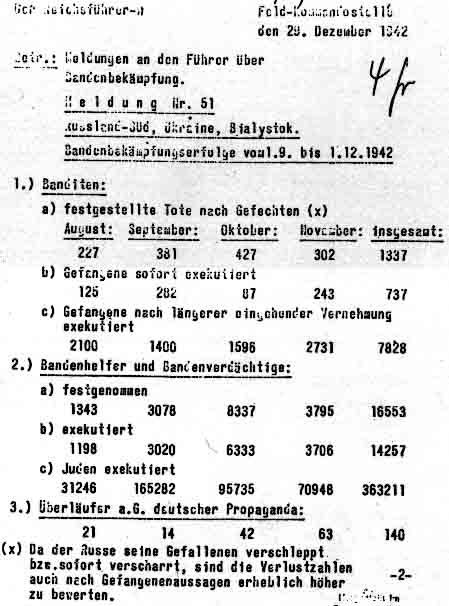|
Walter Schimana
Walter Schimana (12 March 1898 – 12 September 1948) was an Austrian functionary in the German SS during the Nazi era. He was SS and Police Leader in the occupied Soviet Union in 1942 and Higher SS and Police Leader in occupied Greece from October 1943. Responsible for numerous war crimes and atrocities in the occupied territories, Schimana was arrested by the Allies after the war and committed suicide while awaiting trial. SS career Schimana became an early member of the Nazi Party (NSDAP), on 7 December 1926 (Party-Nr. 49042), and joined the paramilitary SA in Munich. After the Nazis came to national power, in 1934 he joined the uniformed Protection Police (''Schutzpolizei'') with the rank of captain. In 1936, Schimana was transferred to the ''Gendarmerie'' as a major. After the Anschluss, he was transferred to the Police Headquarters at Vienna as Commander of the motorized ''Gendarmerie'' for Austria. On 15 August 1939, he joined the SS with the rank of Standartenfüh ... [...More Info...] [...Related Items...] OR: [Wikipedia] [Google] [Baidu] |
Bandenbekämpfung
In German military history, ''Bandenbekämpfung'' (German; ), also Nazi security warfare (during World War II), refers to the concept and military doctrine of countering resistance or insurrection in the rear area during wartime through extreme brutality. The doctrine provided a rationale for disregarding the established laws of war and for targeting of any number of groups, from armed guerrillas to the civilian population, as "bandits" or "members of gangs". As applied by the German Empire and later by Nazi Germany, it became instrumental in the mass crimes against humanity committed by the two regimes, including the Herero and Namaqua genocide and the Holocaust. Emergence Concept and origins According to historian and television documentary producer, Christopher Hale, there are indications that the term ''Bandenbekämpfung'' may go back as far as the Thirty Years' War. Under the German Empire established by Bismarck in 1871 after the Franco-Prussian War—formed as a ... [...More Info...] [...Related Items...] OR: [Wikipedia] [Google] [Baidu] |
Sturmabteilung Officers
The (; SA; literally "Storm Detachment") was the original paramilitary wing of the Nazi Party. It played a significant role in Adolf Hitler's rise to power in the 1920s and 1930s. Its primary purposes were providing protection for Nazi rallies and assemblies, disrupting the meetings of opposing parties, fighting against the paramilitary units of the opposing parties, especially the ''Roter Frontkämpferbund'' of the Communist Party of Germany (KPD) and the ''Reichsbanner Schwarz-Rot-Gold'' of the Social Democratic Party of Germany (SPD), and intimidating Romani, trade unionists, and especially Jews. The SA were colloquially called Brownshirts () because of the colour of their uniform's shirts, similar to Benito Mussolini's blackshirts. The official uniform of the SA was the brown shirt with a brown tie. The color came about because a large shipment of Lettow-shirts, originally intended for the German colonial troops in Germany's former East Africa colony, was purchased ... [...More Info...] [...Related Items...] OR: [Wikipedia] [Google] [Baidu] |
Nazis Who Committed Suicide In Prison Custody
Nazism ( ; german: Nazismus), the common name in English for National Socialism (german: Nationalsozialismus, ), is the far-right totalitarian political ideology and practices associated with Adolf Hitler and the Nazi Party (NSDAP) in Nazi Germany. During Hitler's rise to power in 1930s Europe, it was frequently referred to as Hitlerism (german: Hitlerfaschismus). The later related term " neo-Nazism" is applied to other far-right groups with similar ideas which formed after the Second World War. Nazism is a form of fascism, with disdain for liberal democracy and the parliamentary system. It incorporates a dictatorship, fervent antisemitism, anti-communism, scientific racism, and the use of eugenics into its creed. Its extreme nationalism originated in pan-Germanism and the ethno-nationalist '' Völkisch'' movement which had been a prominent aspect of German nationalism since the late 19th century, and it was strongly influenced by the paramilitary groups that emerged a ... [...More Info...] [...Related Items...] OR: [Wikipedia] [Google] [Baidu] |


